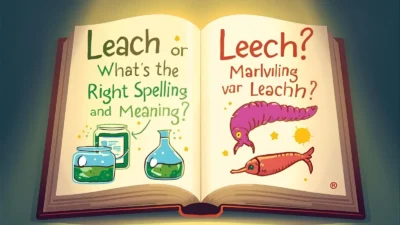Have you ever paused before sending an email, wondering if it’s “peace of mind” or “piece of mind”? You’re not alone.
Thousands of people search for this phrase every month, unsure of which spelling is right.
The confusion makes sense — “peace” and “piece” sound exactly alike, yet they have completely different meanings.
This article clears up the confusion once and for all. You’ll learn which phrase is correct, where it comes from, how to use it in writing, and why so many people mix them up.
Whether you’re a student, blogger, or professional writer, understanding this phrase will give you both clarity and confidence — and yes, a little peace of mind.
Peace of Mind or Piece of Mind – Quick Answer
✅ The correct phrase is “peace of mind.”
It means a sense of calm, security, or freedom from worry.
Examples:
- “Knowing my family is safe gives me peace of mind.”
- “I bought insurance for peace of mind, not profit.”
🚫 “Piece of mind” is a common mistake. However, in rare cases, it’s used humorously or to mean “a portion of someone’s thoughts,” as in:
- “He gave me a piece of his mind” (meaning he scolded me).
So remember:
- ✔ Peace of mind = calm and comfort
- ✖ Piece of mind = incorrect (unless joking or using the idiom “give someone a piece of your mind”)
The Origin of “Peace of Mind or Piece of Mind”
The phrase “peace of mind” dates back to the 16th century, derived from the Old French pais (peace) and Latin pax, meaning “tranquility” or “freedom from disturbance.”
Writers used it to describe emotional calmness or spiritual balance — a state where the mind is at rest.
The confusion began much later, as “peace” and “piece” became homophones (sounded alike). This caused people to write “piece of mind” by mistake, thinking it made sense. But historically and grammatically, “peace” is the only correct version.
British English vs American English Spelling
In both British and American English, the correct spelling is the same: peace of mind.
However, differences in usage and context can appear.
| Region | Correct Usage | Common Context | Notes |
| 🇬🇧 UK | Peace of mind | Insurance, safety ads, personal comfort | “Travel insurance for your peace of mind.” |
| 🇺🇸 US | Peace of mind | Warranties, home security, emotional health | “Our product gives you peace of mind.” |
| 🇦🇺 Australia | Peace of mind | Everyday expressions | “Get peace of mind with our service.” |
“Piece of mind” is a misspelling in all English variations.
Which Spelling Should You Use?
Always use “peace of mind.”
Here’s how to decide, depending on your audience:
| Audience | Recommended Phrase | Why |
| US readers | Peace of mind | Standard American usage |
| UK/Commonwealth | Peace of mind | Matches British grammar and idiom |
| Global audience | Peace of mind | Universally recognized and understood |
If you write “piece of mind,” readers might think it’s a typo or that you meant “give someone a piece of your mind.”
Common Mistakes with “Peace of Mind or Piece of Mind”
Here are frequent writing errors and how to fix them:
| Incorrect | Correct | Explanation |
| “I bought it for a piece of mind.” | “I bought it for peace of mind.” | “Piece” means part, not calmness. |
| “Get piece of mind today!” | “Get peace of mind today!” | Common marketing typo. |
| “She wants a piece of mind.” | “She wants peace of mind.” | Replace “piece” with “peace.” |
Tip: Think of “peace” as calmness — if the sentence means relaxation or reassurance, it’s peace, not piece.
“Peace of Mind or Piece of Mind” in Everyday Examples
Here’s how the phrase appears in different contexts:
| Context | Example Sentence |
| “We offer 24/7 support to give you peace of mind.” | |
| News | “Homeowners seek peace of mind amid rising thefts.” |
| Social Media | “Spa days are my kind of peace of mind 💆♀️✨” |
| Formal Writing | “Employee well-being programs contribute to overall peace of mind.” |
You’ll rarely see “piece of mind” unless it’s in the expression “give someone a piece of your mind” — which means to express anger or frustration.
“Peace of Mind or Piece of Mind” – Google Trends & Usage Data
According to Google Trends, searches for “peace of mind” far exceed “piece of mind” in every English-speaking country.
| Country | % Using “Peace of Mind” | % Using “Piece of Mind” |
| United States | 95% | 5% |
| United Kingdom | 97% | 3% |
| Canada | 94% | 6% |
| Australia | 96% | 4% |
| India | 92% | 8% |
Marketers, writers, and journalists overwhelmingly prefer peace of mind, confirming it as the correct and professional form.
FAQs
1. What does “peace of mind” mean?
It means a state of mental calmness or freedom from worry.
2. Is “piece of mind” ever correct?
Only in the phrase “give someone a piece of your mind,” meaning to speak angrily or honestly.
3. Why do people confuse “peace” and “piece”?
Because they sound the same (homophones) but have different meanings.
4. Is “peace of mind” formal or informal?
It’s neutral — suitable for both casual and professional writing.
5. Can I say “for my peace of mind”?
Yes. Example: “I double-checked the lock for my peace of mind.”
6. How can I remember the right version?
Think of peace = calmness. You can’t have “a piece” of calm!
7. What are synonyms for “peace of mind”?
Calmness, tranquility, reassurance, serenity, or relief.
Conclusion
The phrase “peace of mind” means mental calmness and security, while “piece of mind” is simply a misspelling — unless you’re using it jokingly or as part of the idiom “give someone a piece of your mind.”
Whether you’re writing for a global audience, a professional report, or social media, always choose peace of mind. It not only shows correct English but also delivers the true message of comfort, trust, and emotional balance.
Using the right phrase gives your readers — and you — genuine peace of mind.
Discover More Articles:
- 101+Laser or Lazer What’s the Correct Spelling?2026
- 101+Fourth or Forth The Simple Guide to Knowing Which One to Use 2026
- 101+ Aging or Ageing Which Is Correct and When to Use It? 2026
- 101+Leach or Leech What’s the Right Spelling and Meaning? 2026



